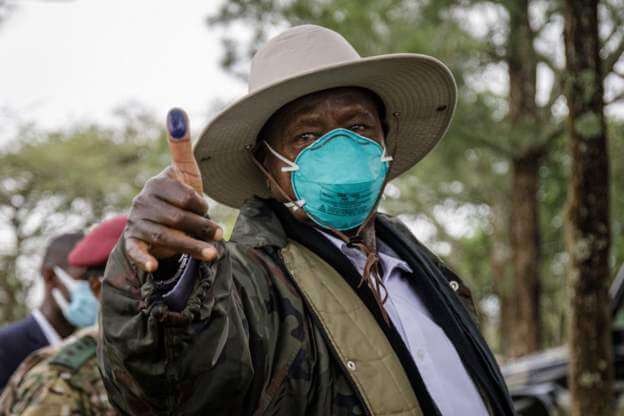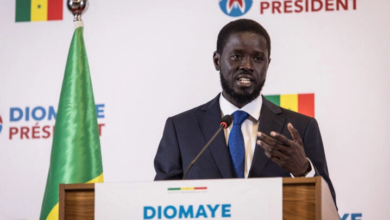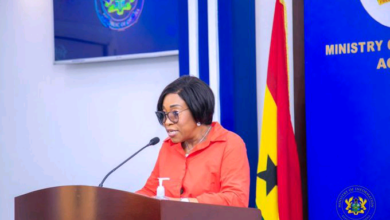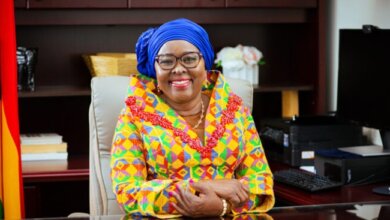Ghana’s president calls for Africa’s resource sovereignty at UNGA
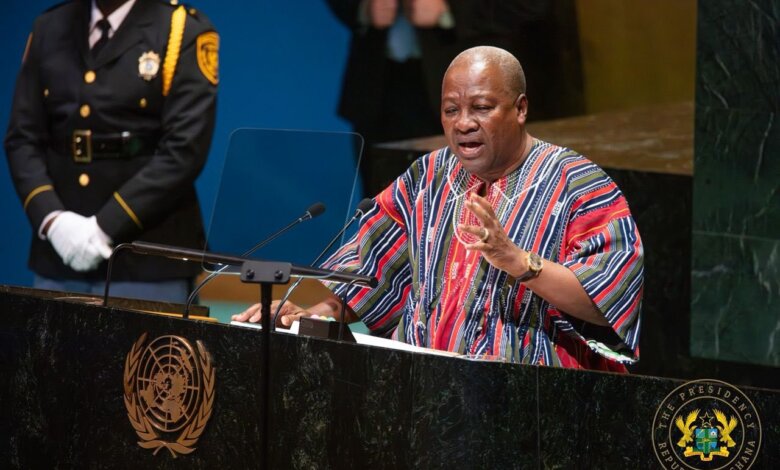
Photo: Ghana’s President John Mahama addressing world leaders at the 80th United Nations General Assembly in New York, September 2025 / © The Presidency, Ghana
Ghana’s President John Dramani Mahama addressed the 80th session of the United Nations General Assembly (UNGA) in New York, United States, urging African nations to assert sovereignty over their natural resources to secure the well-being of their people.
President Mahama emphasised that Africa’s abundant natural resources, including minerals like gold and lithium, oil, gas, and arable land, must primarily benefit its citizens.
He called out the historical exploitation of Africa’s wealth, where foreign corporations have often extracted resources with minimal returns to local communities, leaving behind environmental degradation and economic disparity.
“In an era of global uncertainty, Africa must secure sovereignty over its natural resources in order to find the means necessary for the well-being of its citizens. The days when vast tracts of land were handed over in concessions to foreign companies for exploitation must come to an end,” he declared.
The president’s remarks come at a pivotal moment for Africa. Humanitarian aid to the continent has plummeted by 40% since July 2024, intensifying challenges in addressing critical needs such as healthcare, education, and poverty alleviation. President Mahama argued that reliance on external support is no longer viable, particularly amid global geopolitical tensions and economic disruptions.
He advocated for African nations to leverage their resources to fund transformative initiatives, including infrastructure development, job creation, and social welfare programs. Such measures, he noted, would build resilient economies capable of withstanding global shocks.
“We are tired of the constant image of impoverished rural communities, plagued by disease, living on the margins of vast territories controlled by foreigners, granted in concession for the extraction of natural resources. We are tired of people taking the maximum from us while offering in return only the minimum of respect, attention and dignity,” he said.
President Mahama highlighted the need to reform outdated resource extraction models that favour foreign companies. He pointed to examples of mining and oil agreements that offer African nations minimal royalties while multinational corporations reap substantial profits.
To address this, he proposed strengthening regional cooperation through initiatives like the African Continental Free Trade Area (AfCFTA), which aims to boost intra-African trade and enhance the continent’s collective bargaining power.
The AfCFTA, launched in 2021, was cited as a key framework for achieving these objectives, with the potential to increase Africa’s GDP by $450 billion by 2035, according to estimates from the African Union.
By investing in local processing and value-added industries, such as refining minerals or manufacturing agricultural products, African nations could retain greater economic benefits and create employment opportunities for their youth, who make up a significant portion of the continent’s population.
Ghana itself has taken steps toward this vision. Recent policies in the country’s mining sector, particularly for gold and lithium, prioritise local participation and community benefits. For instance, the government has introduced measures to ensure that mining companies invest in local infrastructure and provide opportunities for Ghanaian workers.
The speech extended beyond resource sovereignty to address broader global inequalities. Mahama urged the UN to reform systemic issues in international trade and finance that disadvantage developing nations. He highlighted how African countries regularly face unfavourable terms in global markets, limiting their ability to compete.
By advocating for fairer trade policies and access to global financial systems, he aligned his message with the UN’s Sustainable Development Goals, particularly those focused on reducing poverty, promoting economic growth, and ensuring environmental sustainability.
The president also addressed the role of African unity in achieving these goals. He called for stronger collaboration among African nations to negotiate better resource deals and invest in regional infrastructure projects, such as energy grids and transportation networks, to facilitate economic integration.
His vision aligns with efforts by countries like Nigeria, South Africa, and Kenya, which are also pushing for greater control over their natural wealth and advocating for policies that prioritise local development.
Written by Abeeb Lekan Sodiq

Abeeb Lekan Sodiq is the Managing Editor of theafricandream.net, a pan-African news website subsidiary of US-based TheAfricanDream LLC. He is also a Human Resource Practitioner, and a freelance Graphics Designer. He has worked with prominent personalities, including ambassadors, secretariats, international organisations, universities, celebrities, NGO, and media firms.

